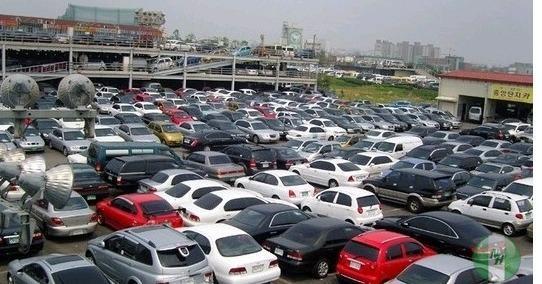Lagos, Nigeria — Once the go-to choice for middle-class Nigerians, foreign-used “tokunbo” cars have suddenly become a luxury item, priced far beyond the reach of the average buyer. A mix of a crashing naira, surging living costs, and new import tariffs has flipped the country’s auto market on its head — and in the process, created an unexpected economic shift where locally used cars are now in the driver’s seat.
For car dealer Nurudeen Amodu, the transformation is staggering. “A 2003–2006 Toyota Camry we used to sell for ₦1.5 million now goes for up to ₦10 million,” he said. The Honda CR-V, once a ₦5 million purchase, now demands ₦13 million. The spike is the combined effect of a weaker naira and steep customs charges, including a new 4% Free on Board levy introduced by the Nigeria Customs Service.
What was once a steady stream of affordable imports is now a trickle — and buyers are turning inward. Local second-hand vehicles, once overshadowed by imports, are enjoying a surge in demand. Online platforms, roadside lots, and private deals are buzzing with activity as struggling Nigerians sell their cars to cover rising living expenses.
Olumide Adegbola sold his Toyota Corolla for ₦4 million — twice what he paid for it — just to keep his family afloat. “The economy is tough. I can’t even afford basics,” he said. Others, like Yunusa, part with their cars reluctantly, unsure if they’ll ever be able to buy another.
The shockwaves are being felt far beyond Nigeria’s borders. In a twist of fate, dealers from Cotonou and buyers from the Niger Republic are now crossing into Nigeria to snap up local used cars — a complete reversal of years past when Nigerian traders would travel abroad to source stock. “Their currency is stronger than ours, so our cars are a bargain for them,” Amodu explained. Some even leave with Nigerian number plates, which are permitted back home.
This market reversal has reignited calls for Nigeria to invest heavily in local car manufacturing. Industry advocates argue that a homegrown automotive sector could shield the country from volatile exchange rates and punitive import tariffs. The Association of Motor Dealers of Nigeria (AMDN) is already in talks with the National Automotive Design and Development Council to make affordable, locally produced vehicles a reality.
Until that vision comes to life, Nigeria’s roads will tell the story of a nation adjusting to a new normal — where cars are no longer just a means of transport, but a financial asset, a survival tool, and now, a hot export.

